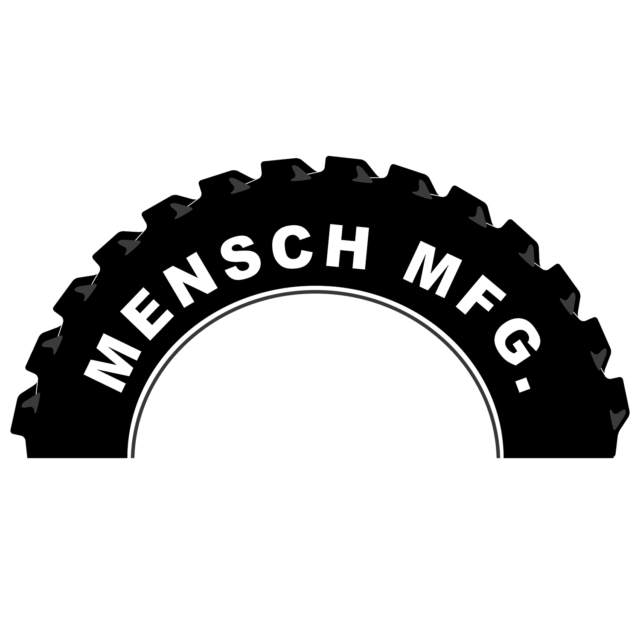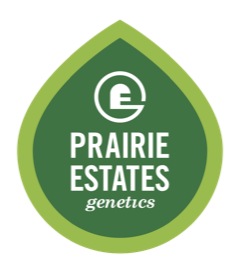Editor’s note: Midge Chambers was featured in the article, “A lesson in dairy leadership from Midge Chambers, a pioneer in the industry.” The following is a compilation of historical information provided to freelance writer Somula Schwoeppe. In the 1930s, there were more than 50 dairies in northeast Indiana. Cities had their own milk ordinances, so health restrictions were not as severe, and bottling not as complicated. Many farms processed their own milk; there were no cooperative or handler activities in Fort Wayne until the fall of 1934 when farmers banded together and organized Allen Dairy Farms. Each farmer purchased a share of stock for $10 and paid for it a little at a time.
Bottling began in a small building at the corner of Wildwood and Broadway, and then moved to 2200 Winch Street. Allen Dairy started with only 6 percent of their volume in the bottle and the Winch Street cheese business, which was then reorganized as Allen Dairy Products Inc. in 1938. They grew their Class I utilization by buying out two local dairies in 1947 – Osterhaus on Northrop Street and the business and equipment of Pleasant Hill, except for the horse-drawn milk wagons. Bottling combined at Northrop Street, and Winch Street was used for manufacturing cottage cheese, butter and hard cheese until 1961. Allen Dairy’s marketing area expanded with acquisitions of small dairies in surrounding towns. In addition to acquisitions, Allen Dairy had distributors in Ohio, Michigan and Illinois.
It was a gloomy day in 1972 when Kroger in Indianapolis built an ultra-modern plant considered to be the largest dairy plant in the world. This hit took almost 40 percent of our retail store business. Management kept busy drumming up school milk business, laying the groundwork for future acquisitions and securing the local store and restaurant business. Customers included Wendy’s founder, Dave Thomas, who started out at the Hobby Ranch House in Fort Wayne, and Don Hall of the Hall’s restaurant empire. Hall opened his downtown Gas House in 1958 and won the catering bid for the Indiana Bar Association’s fall outing. How could he serve lobster and sweet corn piping hot to a crowd of 500? Allen Dairy’s cottage cheese vats! The lobster and sweet corn were cooked in mesh laundry bags, placed in huge plastic trash containers, hoisted into Hall and Allen trucks, and rushed downtown.
Producers were not impressed by management’s seemingly celebrity status and rightfully so. All they could see was red ink and dwindling allocated reserves. In March of 1984, a young, energetic Iowa stater was hired as general manager. He showed his true colors the year he did not take his year-end bonus, but instead, plowed his share back into plant improvements. Jerry Bullis cared about the dairy and the dairy people, such as Mel Frosch, who retired in 1990 with 45 years of service. He was involved in every aspect of milk from the cow to the carton and did every job at a dairy plant from milk can unloader to superintendent. He was a key player throughout the transitions from glass to paper to plastic, from vat pasteurization to short-time, from cans to bulk. In 1977 he left the plant and went into the field. Robin Fuhrman, the first female field representative, took his place and continues as Fort Wayne Division’s field services manager.
In 1984 Pure Sealed sold out to Schenkel of Huntington and Meadow Gold closed, making Allen Dairy the only milk bottler in Allen County. Ending in 1986, Rollie Bultemeyer’s southwest Fort Wayne route was the sole remaining home-delivery route in northeastern Indiana. During that same year, Allen Dairy was the first in the state to introduce tamper-evident packaging on our line of cultured products and gallon jugs of milk and orange juice.
In providing whatever customers wanted, the dairy spread its resources too thin. You need eggs? OK, we can sell them to you.To keep up with market demand, we added apple juice, Hershey’s chocolate milk, Tampico citrus punch, natural spring water, French all-natural frozen yogurt, seasonal eggnog and other products.
Disappointing financial results continued; Allen Dairy was struggling to get by on outdated equipment and production inefficiencies. The problems of financially strapped Allen Dairy further intensified, and when the general manager resigned, the board of directors turned to me, a 30-year veteran Allen Dairy administrator, to serve as general manager. Armed with a business degree, a dairy professor husband, respect of the union employees and trust of the producers, I knew my role was to keep the boat afloat until the board decided what direction to take. Allen Dairy was hanging with one boot on and one oar. The board decided to explore mergers while there was still something to sell – a milk supply, a plant and the business. Prairie Farms offered membership for producers and jobs for employees. Prairie Farms Inc. CEO Leonard Southwell had been through many mergers and knew how to get through all the wickets.
On Dec. 20, 1993, shareholder members unanimously approved the Jan. 1, 1994, merger of Allen Dairy and Prairie Farms Dairy. Allen producers nominated their current president, Paul Mills, and treasurer, Randy Deetz, to serve on the Prairie Farms board. Later, Paul Mills would serve as president of Prairie Farms Inc. The good ship Allen Dairy sailed away to a safe harbor. Prairie Farms streamlined the production into a few select products and invested millions of dollars into the plant and fleet. In December of 2018, the Fort Wayne Division will reach an 80-year milestone of being the only cooperative or handler in northeast Indiana.
One final entry into this diary: I’m proud to go to the dairy case in the grocery store and pull out a jug of milk with the label underneath, “I’m local!”









